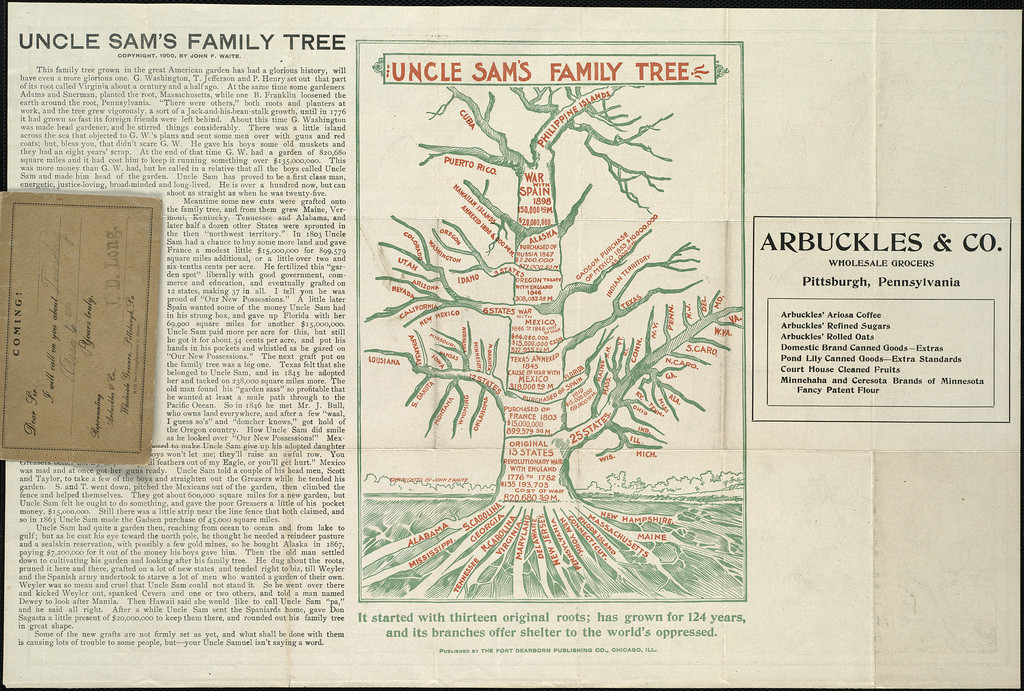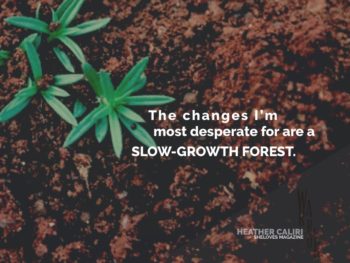
Last week, I talked about Numbers 14:18, about how children are “punished for the sins of the fathers to the third and fourth generation”. If you wonder why the heck I’d want to talk about that verse, go read it. I promise there’s helpful information hidden in this seemingly awful verse of the Bible.
This week’s post ad what we should do once we understand the sin that we inherit. First off:
Ading our sin requires intentional, rigorous spiritual practices.
Humanly speaking, our default setting is to repeat the patterns and inheritance given to us by our families. It’s really hard to rewire our brains to do otherwise.
But, with God, all things are possible.
Again, the verse’s realism about sin helps us figure out what we have to do to rewire ourselves.
Saying the sinner’s prayer isn’t a bad start. But we need to go further than that. Reciting verses about Christ conquering all? Also helpful, but inadequate.
Here’s the real key:
We have to figure out what the sins of our fathers are, and ad them with every ounce of courage we have.
If you avoid thinking about the past—about patterns of abuse in your family, how alcoholism morphs and shifts and affects different generations, you are a sitting duck for sin.
If you put your past in a box, sentimentalize your childhood, or read your country’s (or Christianity’s) history with blinders on, you are a sitting duck for sin.
Unless we can tell the stories of our families and nations with clear-headed honesty, we’re unarmed and relatively helpless. Yes, God will cleanse us white as snow when Christ returns. But we are not victorious now.
Is that really how we want to to treat the desperate sacrifice of Jesus? By settling for business as usual that adds to the darkness of the world?
We must reckon with the past. Grieve it. Get angry about it.
And finally, we must do something about it.
But what? you might ask.
Therapy is a great place to start. Initiating honest, scary conversations with family members is another. Read up about your particular brain chemistry. Read your nation’s history from the viewpoint of the oppressed. Worship with people of color. Move to a new neighborhood. Pay reparations. Pray. Engage in activism.
(One caveat: Having hard conversations with difficult people requires wisdom about how to stay safe, and how to navigate the toxicity of what we’re recovering from. Which brings me back to suggesting therapy.)
Just don’t shrug your shoulders at the past and decide dealing with it just too hard or scary. Because:
Sin is a terrifying emergency.
Do you really want your grandchildren to drink the poison you’ve managed to convince yourself doesn’t hurt you? Do you want your children to unknowingly, blindly repeat your mistakes as parents or spouses or human beings? Do you want your unhappiness or unwitting white supremacy or fear or self-loathing passed down to future generations?
I’m not telling you to shame yourself for your failings. Jesus is pretty clear that we’re all in the same sin-boat. We all inherit this shit from our families and culture. We all have fallen short of the glory of God. Jesus knows you are so much more than your biggest struggle or character flaw. You are a wondrous creature, fully beloved by God.
That is precisely why sin is such a disaster.
When I think about the consequences of generational sin on people I love, it brings tears to my eyes. Sin kills. It maims, bullies, and steals joy. It destroys gifts and crushes hope. It sows seeds of self-loathing and shame and ignorance and indifference.
And I’m not just talking about the victims of this kind of abuse. I’m talking about the secondary, but real horror of realizing that you are the abuser.
We can’t ignore this emergency for even one more second.
Frankly, the Evangelical culture of sin management minimizes sin. I am offended by the idea that the Sinner’s Prayer magically whisks away our sinful nature like a rabbit in a hat. For way too long, I told myself that Jesus had already taken care of my sin, so I should be fine! All my suffering was in the past, and I was now More Than a Conqueror™!
If the sinner’s prayer solves everything, if reading your Bible more will work magic on your fear, then why does your toxic family or your faltering marriage or your numbness keep drowning you?
Jesus atones for our sin, yes. But he’s not hand-sanitizer, where a little squirt of Savior allows us to eat lunch without worrying about salmonella.
No: he’s a doctor recommending a course of chemotherapy for fourth-stage cancer. He’s Aslan at the pool on Dragon Island, ripping open Eustace’s skin.
Look, this is all a process. None of us are capable of rewiring a single misfiring synapse on our own power. How we repent of sin is a God-soaked process, full of faithfulness and compassion and humor and humility.
But it’s worth it.
When I think about how I can give my children tools to battle our family’s demons, my face lights up. When I think about seriously ading my own sin so I give my grandchildren a chance to speak light and hope and justice in this world, I feel peace.
The hard work, the terrifying call to schedule therapy, the fraught conversations and tears and grief are worth it. Sin is prison and slavery and death; God longs to free every last one of us from it. He longs to empower us to speak life instead of death into our families and communities.
And by his precious blood, every last one of us can be snatched back from the grave.
Go here to see part one of this post. Go here to see the whole series.
Image credit: Norman B. Leventhal Map Center













 Beliefs I Wish Weren’t True: Sins of the Fathers Part 1
Beliefs I Wish Weren’t True: Sins of the Fathers Part 1
I hope people are connecting with this, Heather, with your urgency to find and treat the generational cancers. I fear that in our effort to be kinder, gentler in our words, in particular, that sin is ignored. We live in a world that what may be sin to some is a choice to others. I’m convicted by your words, and rightfully so. Yet, I feel defeated in the area of action. Again, thanks for tackling a difficult subject. Not much of this kind of writing around these day.
Thanks so much for your kind words, Debby.
I’m so sorry you feel defeated. I was a little afraid to write the post because I don’t want it to be guilt-inducing. Like I said, all the power in the equation of change is God’s. And any healing I’ve found is through the most absurdly tiny steps forward. Starting a journal. Listening when i felt God nudging me to go visit a church service. Reading more diverse blogs. Reading books on healthy communication and parenting. And (not exactly small, but not impossible either) getting therapy and/or sharing honestly with wise friends. (Therapy might be out of reach financially for some, but for those of us who can afford it, let’s GO.)
We’ll never conquer generational sin by saying, “Today I’m going to conquer generational sin!” But if we admit to God our grief and bewilderment, and say “help, help help” and be willing to take baby steps of bravery and faithfulness, I SWEAR that we will be led by the nose to healing. Humility and desperation for healing help a ton too.
Such powerful words here, friend.
Thanks, Jenna!
I really loved this. Cleaning out my aunt’s house meant that I found a lot of old records, including letters going back to the 1850s, that explained so much of my family history to me, both good and bad.
This post is so good. ^^
Thanks, Eleanor! Wow, I love old family records–I’m so glad that the cleaning bore fruit in that way for you.